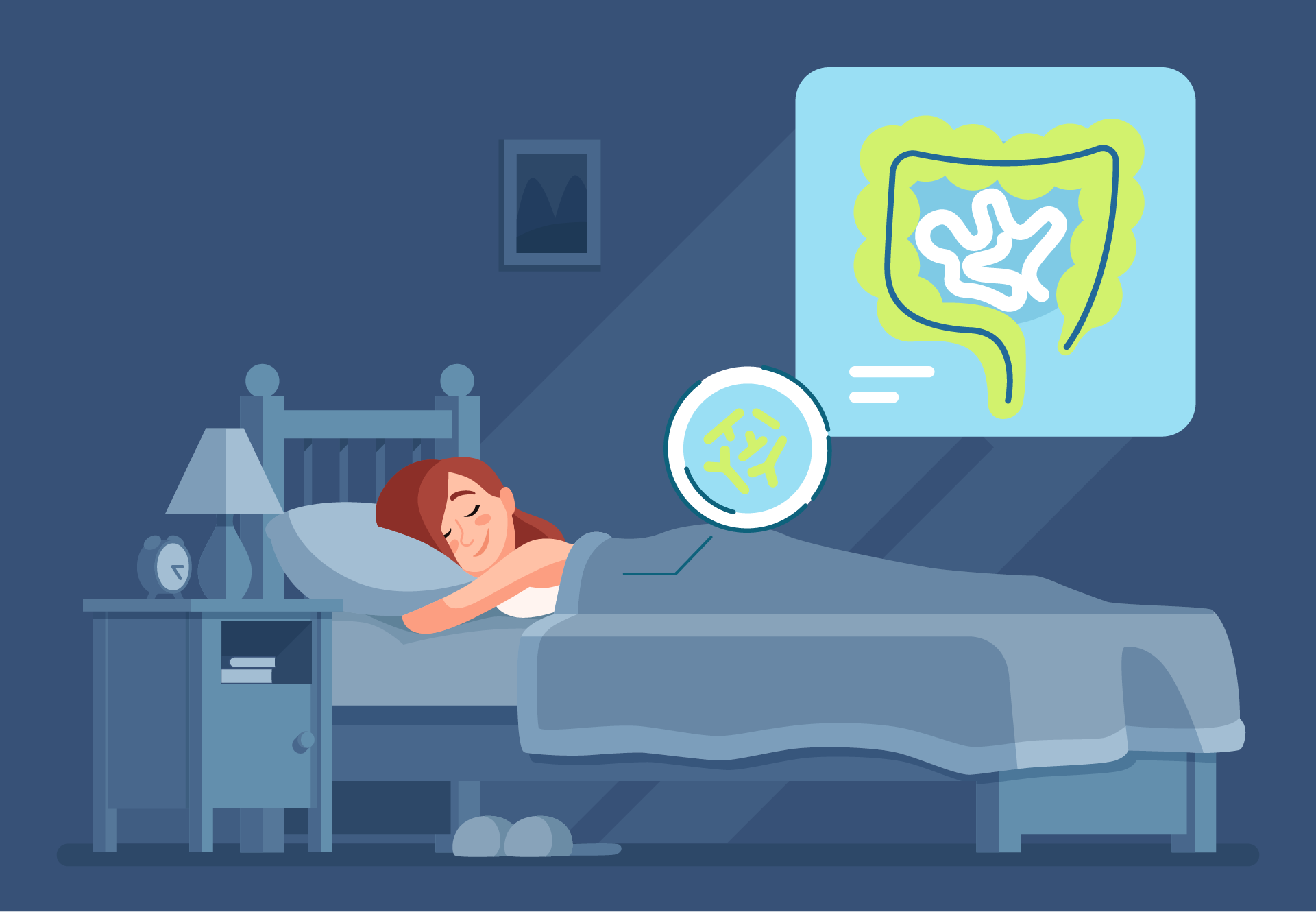Gut Health, Sleep, and Depression: How the Hidden Connection Shapes Well-Being
For years, researchers have investigated the intricate ways in which the mind and body communicate. One area gaining increasing attention is the connection between gut health, sleep quality, and mental well-being. A recent large-scale study has shed light on how these three elements are intertwined, suggesting that treating them separately may overlook the bigger picture.

Gut Disorders and Their Impact on Sleep
Digestive problems, such as irritable bowel syndrome (IBS), chronic acid reflux, or other gastrointestinal (GI) conditions, are often dismissed as purely physical ailments. Yet, this new research indicates they may have far-reaching consequences on overall health.
The analysis, based on nearly ten years of U.S. national health data, found that individuals living with GI disorders were 70% more likely to experience difficulties falling or staying asleep compared to those without such conditions. Even more striking, they were twice as likely to be formally diagnosed with sleep disorders, such as insomnia or sleep apnea.
Beyond these statistics, people with digestive conditions also tended to sleep fewer hours overall. Reduced rest not only worsens physical discomfort but can also create a cycle of fatigue, reduced immunity, and emotional distress.
The Role of Depression in the Gut-Sleep Connection
What makes these findings particularly important is the role of mental health—specifically depression. The researchers discovered that while GI disorders directly influence sleep patterns, the presence of depression significantly amplifies these effects. In other words, digestive problems may trigger sleep issues, but when depression is also present, the risk becomes much greater.
This highlights depression as a key mediator in the relationship between gut health and sleep. Without addressing the psychological component, treatments that focus only on digestive symptoms or sleep hygiene may fall short.

A Holistic Perspective on Health
The study’s results remained consistent even when accounting for other common health factors such as smoking, high blood pressure, or diabetes. This strengthens the case that the gut-brain connection is a unique and powerful pathway that deserves attention in clinical practice.
The broader implication is clear: health should not be treated in isolation. A patient who suffers from chronic digestive discomfort and sleep disturbances may require more than dietary adjustments or sleep aids. Mental health support—especially for depression—could be just as vital in breaking the cycle.
The Gut-Brain Axis: Science Behind the Link
The findings also align with a growing body of research on the gut-brain axis, the two-way communication system between the digestive tract and the brain. This pathway involves a network of nerves, hormones, and gut microbes that can influence mood, cognition, and physical health.
For instance, imbalances in gut microbiota have been linked not only to digestive conditions but also to depression and anxiety. Sleep disruption further complicates this balance, creating a feedback loop where poor rest worsens gut function and mood, which in turn makes sleep harder to achieve.
Implications for Patients and Clinicians
For patients, these results emphasize the importance of speaking openly with healthcare providers about all aspects of their well-being, not just isolated symptoms. Reporting digestive problems, sleep patterns, and mental health struggles together may lead to more effective treatment plans.
For clinicians, the message is equally strong: integrated care is essential. Screening for depression in patients with GI disorders and poor sleep could help identify those at highest risk and allow for earlier interventions. In practice, this might mean combining gastrointestinal treatment with mental health therapies or incorporating lifestyle strategies that address sleep quality alongside psychological resilience.
The Path Toward Whole-Person Care
The study reinforces a shift already underway in modern medicine—moving away from a compartmentalized view of health toward one that recognizes the interdependence of body and mind. By addressing digestive symptoms, sleep quality, and mental health together, clinicians can provide patients with a more comprehensive path to recovery and improved quality of life.
Conclusion
This decade-long investigation underscores an often-overlooked truth: gut health, sleep, and mental well-being are not separate chapters of health, but part of the same story. Depression plays a critical role in amplifying the relationship between digestive conditions and poor sleep, reminding both patients and providers that the path to wellness lies in treating the whole person, not just the symptoms.
📄 Research Reference
Ye S et al. Association between gastrointestinal disorders and sleep-related problems: the mediating effect of depression. BMC Gastroenterology (2025).